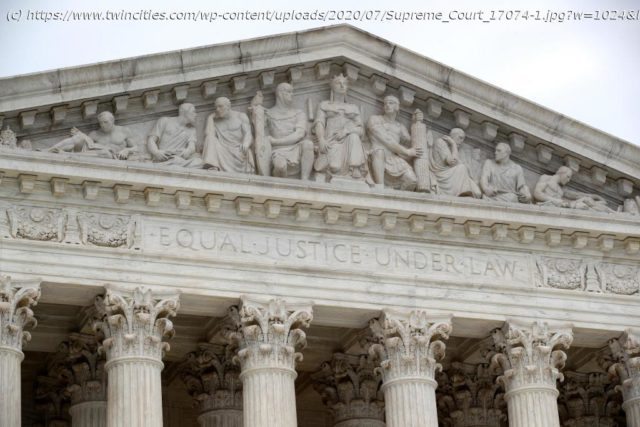WASHINGTON (AP) — In a decision flavored with references to “Hamilton” and “Veep,” the Supreme Court ruled unanimously Monday that states can require presidential elec…
WASHINGTON — In a decision flavored with references to “Hamilton” and “Veep,” the Supreme Court ruled unanimously Monday that states can require presidential electors to back their states’ popular vote winner in the Electoral College.
The ruling, in cases in Washington state and Colorado just under four months before the 2020 election, leaves in place laws in 32 states and the District of Columbia that bind electors to vote for the popular-vote winner, as electors almost always do anyway.
So-called faithless electors have not been critical to the outcome of a presidential election, but that could change in a race decided by just a few electoral votes. It takes 270 electoral votes to win the presidency.
A state may instruct “electors that they have no ground for reversing the vote of millions of its citizens,” Justice Elena Kagan wrote in her majority opinion that walked through American political and constitutional history with an occasional nod to pop culture.
Such an order by a state “accords with the Constitution — as well as with the trust of a Nation that here, We the People rule,” Kagan wrote.
President Donald Trump has been both a critic and fan of the Electoral College.
In 2012, he tweeted, “The electoral college is a disaster for a democracy.” But in November 2016 after he won he presidency despite losing the popular vote to Hillary Clinton, he tweeted, “The Electoral College is actually genius in that it brings all states, including the smaller ones, into play.”
Monday’s ruling was not about the legitimacy of the Electoral College or an ongoing effort to effectively eliminate it by having states commit to support the national popular vote winner. That proposal, sure to be challenged in the courts, wouldn’t take effect unless states constituting a majority of electoral votes endorsed it.
The court acted on another issue, whether electors are free agents regardless of what voters in their states decide. The justices scheduled arguments for last spring so they could resolve the issue before this year’s presidential election rather than amid a potential political crisis after the country votes.






